'Here’s why I’m freezing my eggs'
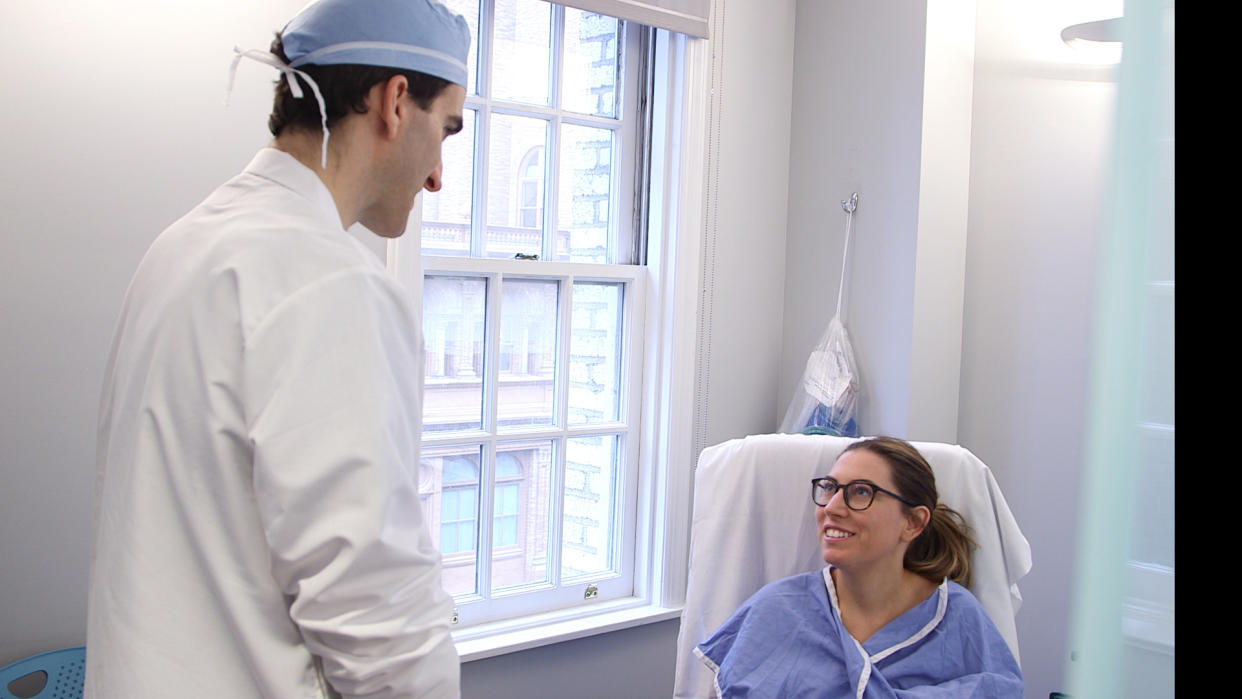
There are thousands of pounds of drugs sitting on my coffee table. Nine-hundred units of Follistim, 450 IU of Menopur, Azithromycin tablets, one pre-filled Ovidrel syringe, an Epipen-like autoinjector, a ziplock bag of syringes, alcohol swabs, a hazardous materials container. The first three nights of medications I’ll need to inject myself with in order to freeze my eggs. But now the question that I found so ignorant coming from other people is creeping into my own head: Why are you doing this?
I had always assumed only two types of women freeze their eggs: Single women who were either doing it as a Plan B in case they found Mr. Right "too late" to conceive naturally or who planned to be single mothers; and women with a health condition that threatened the function of their reproductive organs. But I’m a healthy, married 34-year-old woman. I am living my Plan A.
Matthew and I have been together for seven years and married for two. We met volunteering at a children’s literacy program shortly after I moved to New York from Vancouver, and now live in a 250-square-foot studio in New York’s Greenwich Village - a testament to our compatibility. We love our active social lives, and both work long, hard hours - he in advertising, me as an entertainment journalist - and while having kids isn’t a must for us, we want to keep the option open. We probably would have just tried to get pregnant naturally when the time felt right and hoped for the best, if it wasn’t for the advice of my best friend.

Last year, she decided to freeze her eggs. I wasn’t surprised at all. She is successful, career-oriented, and single. She wasn’t going to let a biological clock impede her career or her standards when looking for a partner. She asked me why I hadn’t considered doing the same and I instinctively responded with, “Because the biggest piece of my baby-making puzzle is in place: I have Matthew.” As soon as the explanation came out of my mouth I knew that didn’t answer her question. Yes, I knew who I wanted to have children with - but I didn’t know anything about my fertility. She suggested I at least take the first step: do an Anti-Mullerian Hormone (AMH) test, which shows the estimated number of eggs you have left.
A quick refresher: Women are born with all the eggs they will ever have, approximately 1- to 2 million in the immature form of ovarian follicles. The quality and quantity of those eggs decline as a woman ages. Unlike sperm, eggs do not regenerate. During each menstrual cycle multiple follicles are activated but only one egg matures and is released (to be either fertilised or expelled in the form of a period) while the rest of the follicles are lost. Although, the numbers vary, on average we lose upwards of 1,000 potential eggs per month, and that loss accelerates as we get older. By age 25, a woman may have about 300,000 remaining; significantly less after 35.
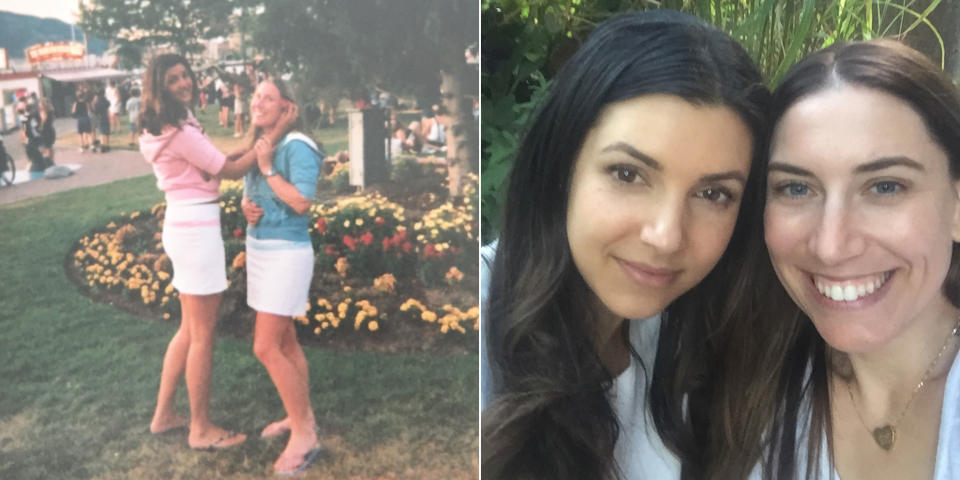
Until recently, there was no reliable way of estimating one’s “ovarian reserve” – the number of quality eggs remaining in the ovaries. But the AMH test (a simple blood test, sometimes referred to colloquially as the “egg timer test”) has become readily available in the past two years. The test is non-invasive and often (not always) covered by insurance, but you still usually have to specifically request it from your gynaecologist.
AMH is a hormone secreted by cells in the ovarian follicles, and the higher the AMH level, the more eggs there are presumed to be. The average range for a woman my age is between 1 ng/ml and 4 ng/ml. Under 1 is considered low. I’ve always been pretty healthy, so - although my doctors emphasised that lifestyle does not impact egg supply - I was optimistic that my AMH levels would be high. I assumed I would be closer to a 4. Instead, my result was 1.3 ng/ml.
I was devastated. My result was within the normal range, but being that close to the low end made me realise that my egg levels would soon be concerningly low. As I shared the results with Matthew, I broke down into tears. I cried not so much because I thought something was wrong with me, but because I didn’t want to feel guilty about putting off trying for a baby. I was no longer blissfully unaware of my circumstances. As Matthew consoled me, he reminded me that this is exactly why I took the test: to gain insight about my body and to use the information to help make decisions about our future.
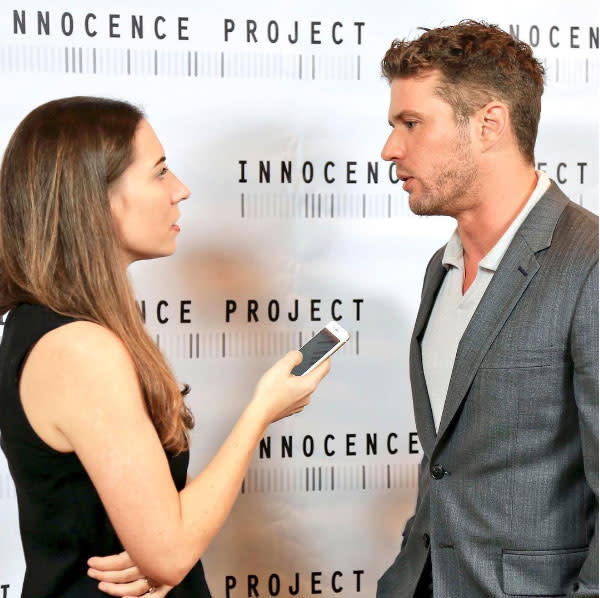
So together, we weighed my options. We still didn’t want to try for a baby just yet (I was in the interview phase of an incredible new job opportunity and I didn’t want to derail that momentum), but also didn’t want to find ourselves in a dire situation if we wanted one in the future. Ideally, we will conceive a baby naturally when we’re ready to try, but if we need to pursue fertility treatments, it would be a huge benefit to already have eggs in storage. Harvesting eggs now, while I have more to work with, will yield much better results compared to three, five or 10 years from now when my supply will be lower. Of course IVF would be an expensive, complicated process, and there are no guarantees that the frozen eggs would turn into a viable pregnancy - according to a 2016 study from the journal Fertility and Sterility, women who freeze at least 10-15 eggs by age 35 can expect a 60-80% likelihood of a successful pregnancy). But having a back up would give me tremendous peace of mind.
Then there’s the issue of cost. Unless you work for a progressive company like Google or Facebook, which cover the cost of egg freezing in their medical insurance plan, you can expect to pay upwards of $20,000 (£15,400) out of pocket per round. During my research, I came across a boutique clinic called Extend Fertility that had opened recently in New York. They only do egg extraction and freezing, not IVF or other fertility-related procedures. This cuts their costs way down. I’d be able to do the procedure for $5,000 (£3,800), plus about $2,000 to $4,000 (£1,500 to £3,000) for the needed medications. Still a high cost, but the savings alone made it easier for us to justify. They also guarantee 12 eggs (up to a maximum of four rounds of extractions) for that fee. Other fertility clinics charge per round no matter how many eggs they get.
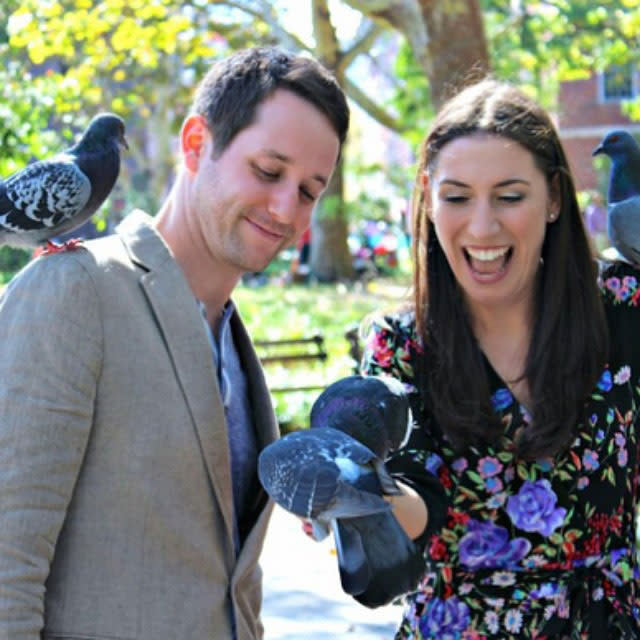
I decided to freeze my eggs.
The first person I called with my decision was my mum. As the phone rang, I realised I was nervous. I've had friends whose mothers retorted with "focus on finding a husband" or "you'll be sorry if you wait" to news of them freezing their eggs. I reminded myself that my mum had me when she was 35-years-old (she was 32 and 37 when she had my brothers) so I didn’t need to sell her on the benefits of waiting. "This is so smart," my mum told me, and I was filled with relief.
Telling my in-laws was different. They’re not pushy, but I get the impression that they're eager to have a grandchild to spoil and I didn't want to disappoint them. They were quiet at first, when I told them over dinner, but when I explained this was about setting up a back up plan if needed, they softened. Once they started with the egg puns, I knew they were on board.
Back in my apartment a couple ofweeks later, I was overwhelmed by the medications I’d need to prepare for my first injections, despite extensive research, multiple consultations with my doctors, and detailed conversations with my best friend. I reminded myself why I was doing this and I queued up an instructional YouTube video and prepared the meds. Matthew gave me the first shot in my abdomen. Painless. (Seriously, it was less painful than a flu shot).
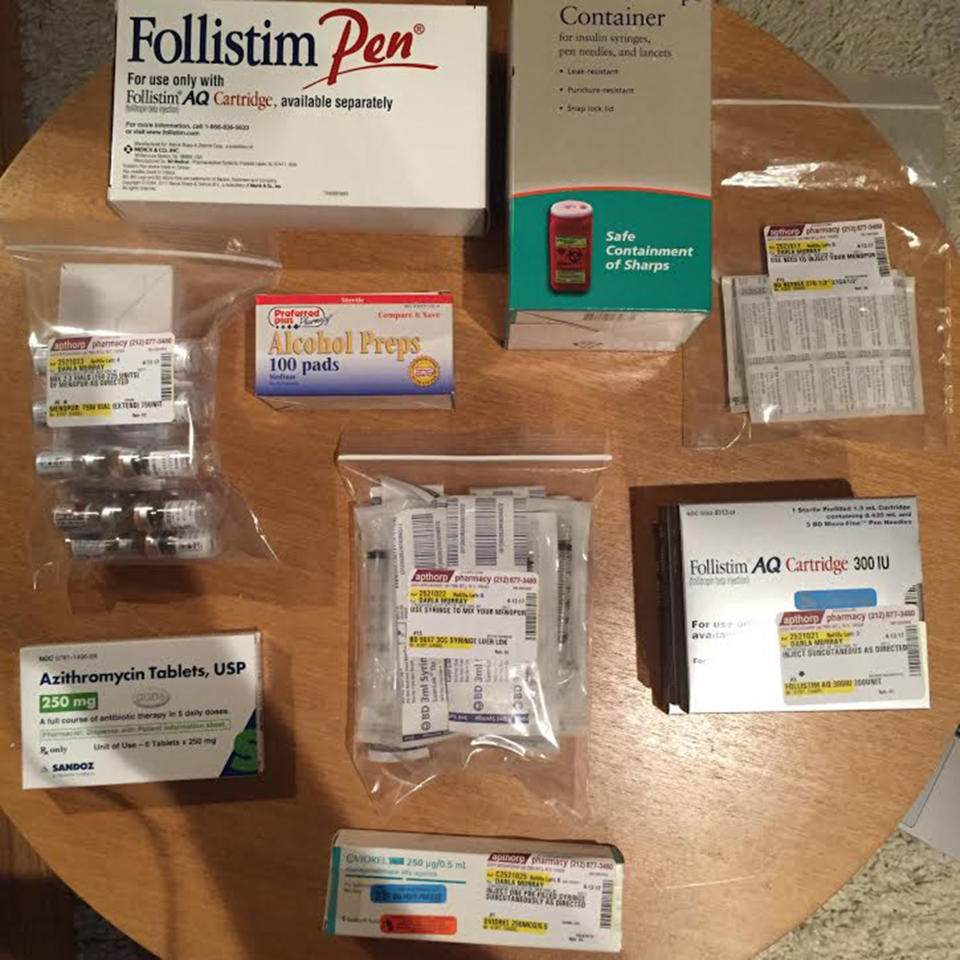
For the next eight days, Matthew gave me two shots each evening. I felt great during the whole process - no emotional outbursts or spontaneous tears that some women complain of (although crying while watching America’s Got Talent auditions is nothing new for me). I’m not sure if it was the influx of baby-making hormones or the nightly ritual of Matthew ever-so-gently injecting me with the meds, but I felt closer to him than ever. (FYI, sex during the cycle and in the first few days after the retrieval is not recommended because it can be uncomfortable due to your enlarged ovaries. You’re also not supposed to exercise because there’s a risk of the enlarged ovaries twisting.). Physically, my skin glowed - yay! - but I gained four pounds of water weight - ugh! I also had some mild bruising on my abdomen.
I visited Extend Fertility every other morning for monitoring, where a nurse would draw blood to test my hormone levels and see how I was reacting to the medications. A vaginal ultrasound showed the doctor how my eggs were maturing. The hormone injections work by stimulating the follicles so that multiple eggs mature instead of just one - eggs that would otherwise be lost. Most people take hormones for seven to 14 days. Determining the length of treatment is a fine balance, because if you wait too long before extracting, the eggs deteriorate, but if you take them out too soon, they’re not yet mature. After eight days, my doctor decided my eggs were ready to be extracted. That night, Matthew gave me my final injection (called a “trigger shot”) and two days later I returned to the clinic for my retrieval.

The prep was easy. I couldn’t eat overnight because I’d be under general anesthesia for the procedure. Early the next morning, my stomach growling, I changed into a medical gown and filled out some paperwork. Matthew opted not to be filmed for the video, but he was with me at the clinic and by my side before and after the procedure. When it was go-time, I walked into the procedure room, climbed up on the table, and put my legs in the stirrups. About 15 minutes later, I woke up in the recovery room.
Dr. Daniel Kort, one of the clinic’s reproductive endocrinologists, told me he had retrieved 15 eggs, and, despite my post-propofol haze, I remember being thrilled. More than the recommended 12 eggs, in one round! Matthew and I celebrated with brunch (avocado toast and eggs - weird choice, I know) and I napped the rest of the day, tired from the anaesthesia. I wasn’t in pain, but I felt a bit crampy. I woke up to a call from the nurse the next day. After the doctor extracts the eggs, the embryologist examines each one and only freezes the perfectly formed eggs, of which I only had eight.
The news felt like a kick in the swollen ovaries. Eight eggs may seem like a fine amount - Octomom is not #goals for us - but having 15 frozen eggs would have equated to about an 85% chance of a viable pregnancy from IVF. Having eight eggs bumps that down to 50%. Even though I had a relatively easy experience with the injections, doctor’s visits, and retrieval, I didn’t particularly feel like doing it all again. Matthew comforted me by reminding me that eight eggs is still eight more than we previously had in storage.
Ultimately I will do do another round, because it’s included in the cost and it seems like a missed opportunity not to. This time, there’s a lot less fear around the process - and no second guesses as to why I’m doing it.
Follow Darla on Twitter. From Cosmopolitan US.
You Might Also Like


